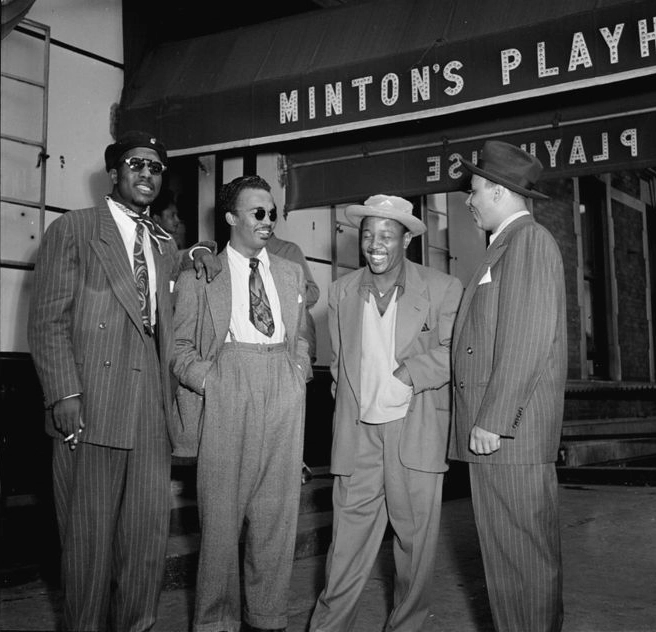 Thelonious Monk, Howard McGhee, Roy Eldridge, Teddy Hill - easy to see why Eldridge was called "Little Jazz"
Thelonious Monk, Howard McGhee, Roy Eldridge, Teddy Hill - easy to see why Eldridge was called "Little Jazz"
Roy Eldridge (January 30, 1911 – February 26, 1989), nicknamed "Little Jazz", was an American jazz trumpeter. His sophisticated use of harmony, his virtuosic solos exhibiting a departure from the dominant style of jazz trumpet innovator Louis Armstrong, and his strong impact on Dizzy Gillespie mark him as one of the most influential musicians of the swing era and a precursor of bebop. Having begun playing the piano at the age of five, drums at six and bugle shortly thereafter, he played trumpet predominantly from age eleven. As a teen, he went on the road with a series of territory bands, developing his technique, ear and repertoire. Eldridge moved to New York in November 1930, playing in various bands in the early 1930s, including a number of Harlem dance bands with Cecil Scott, Elmer Snowden, Charlie Johnson, and Teddy Hill. In 1935, he became the featured soloist in the Fletcher Henderson Orchestra. In 1941, he joined the Gene Krupa Orchestra; in 1944 he joined Artie Shaw's band. In the postwar years, he became part of the group which toured under the Jazz at the Philharmonic banner, under Norman Granz.
From a 1965 TV special, here is Roy Eldridge with the Oscar Peterson Trio:

